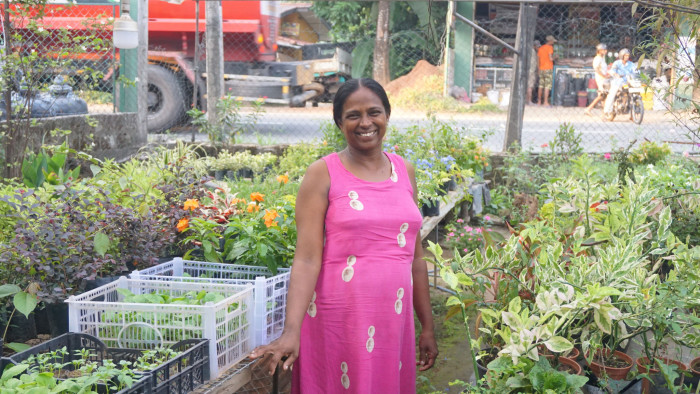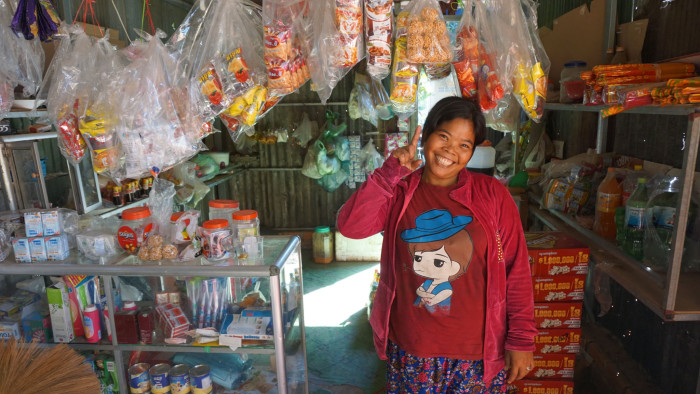Capital markets lawyers sharpen impact investing skills

Simply sign up to the Professional services myFT Digest -- delivered directly to your inbox.
As with any bond, the $12m raised at the start of the year by Singapore’s Impact Investment Exchange to support women’s livelihoods across Asia required extensive legal advice.
But unlike most of the transactions that take place daily on global bond markets, the lawyers — including a number at Shearman & Sterling and Latham & Watkins – worked on the deal for free.
“We could not have done this without the pro bono support,” says Robert Kraybill, chief investment officer at IIX, an organisation that aims to raise funds for communities that otherwise struggle to access finance.
The deal provides an early glimpse of how pro bono work, more typically associated with litigation on behalf of those who cannot afford lawyers’ advice, is evolving to incorporate other types of legal expertise from impact investing to capital markets.
This year financing has become a pressing question for non-governmental organisations (NGOs) and charities across Asia, with the coronavirus pandemic weakening economic activity and putting a halt to many traditional fundraising activities. “The NGOs are firefighting at the moment,” says Catherine Husted, head of pro bono and community investment at law firm Allen & Overy in Hong Kong. “A lot of them are running out of money”.
The financial pressures on the sector — as well as coronavirus-related limits on face-to-face meetings — present a challenge for lawyers looking for pro bono work. NGOs typically play a crucial role in connecting law firms with clients, or as partners in campaigns related to environment, social and governance (ESG) projects.
In Hong Kong, fundraising activities were already hit by anti-government protests, which dominated the second half of last year. In September 2019, for example, a Save the Children event was cancelled as a result of the unrest.

Lawyers suggest a lot of fundraising was held over to the start of this year, only to be further derailed by the coronavirus outbreak.
Lorna Chen, Asia regional managing partner at Shearman & Sterling in Hong Kong, says that while her firm remains active on a number of initiatives, new pro bono opportunities are currently difficult to find — a problem also affecting normal, day-to-day work of lawyers globally. “On the transactional work side, market activity level is down . . . people just can’t finish their due diligence trips and can’t travel,” she says.
There are signs, however, that other, less conventional applications of pro bono work, such as corporate law generally and capital markets in particular, might emerge if the crisis facing the region’s philanthropic sector continues. In a pro bono roundtable meeting held via videoconference in May, law firms discussed whether pro bono mergers and acquisition advice for NGOs might well become necessary if their financial challenges worsen.
“You could have four organisations dealing with migrant worker rights, [and] they might say let’s think about coming together if we’re going to survive,” says Ms Husted at Allen & Overy.
Brendan Hannigan, a partner at Allen & Overy in Singapore, who specialises in M&A across Asia and also participates in the firm’s pro bono efforts, says such measures would be unusual.
“There’s no tradition of charities merging in this way . . . But there’s no reason why they shouldn’t,” he says. “It’s crisis management.”
If law firms do turn towards less traditional methods of sharing their expertise pro bono, the move will echo the Women’s Livelihood Bond programme, which began in 2016 and expects to raise another $30m-$50m later this year. The initiative represented a rare opportunity for capital markets lawyers to dispense their advice for free.
While short-term effects from the coronavirus generate challenges in traditional pro bono work, a longer-term shift towards impact investing — as well as an urgent need for funding in the NGO sector — stands to provide lawyers with an opportunity to contribute pro bono their legal expertise in capital markets and M&A.
“Imagine you’re a capital markets lawyer in Hong Kong and you think ‘well, how can I meaningfully provide pro bono assistance in a way that uses my skill set?’” says Mr Kraybill, who formerly worked in investment banking and asset management. “They’re very enthusiastic about this product [the Women’s Livelihood Bond] because it really uses the skills that they’ve honed.”
Part of the reason that pro bono work is so helpful for capital issuance, Mr Kraybill adds, is that the smaller sums being raised would otherwise mean very high market-rate fees relative to the deal size.
“If we get to bonds of large enough size, maybe that’s not needed any more,” he says of pro bono work. “But, at least to get this new market off the ground, it’s absolutely needed.”
The tables below rank law firms for the FT Innovative Lawyers Asia-Pacific awards

Comments